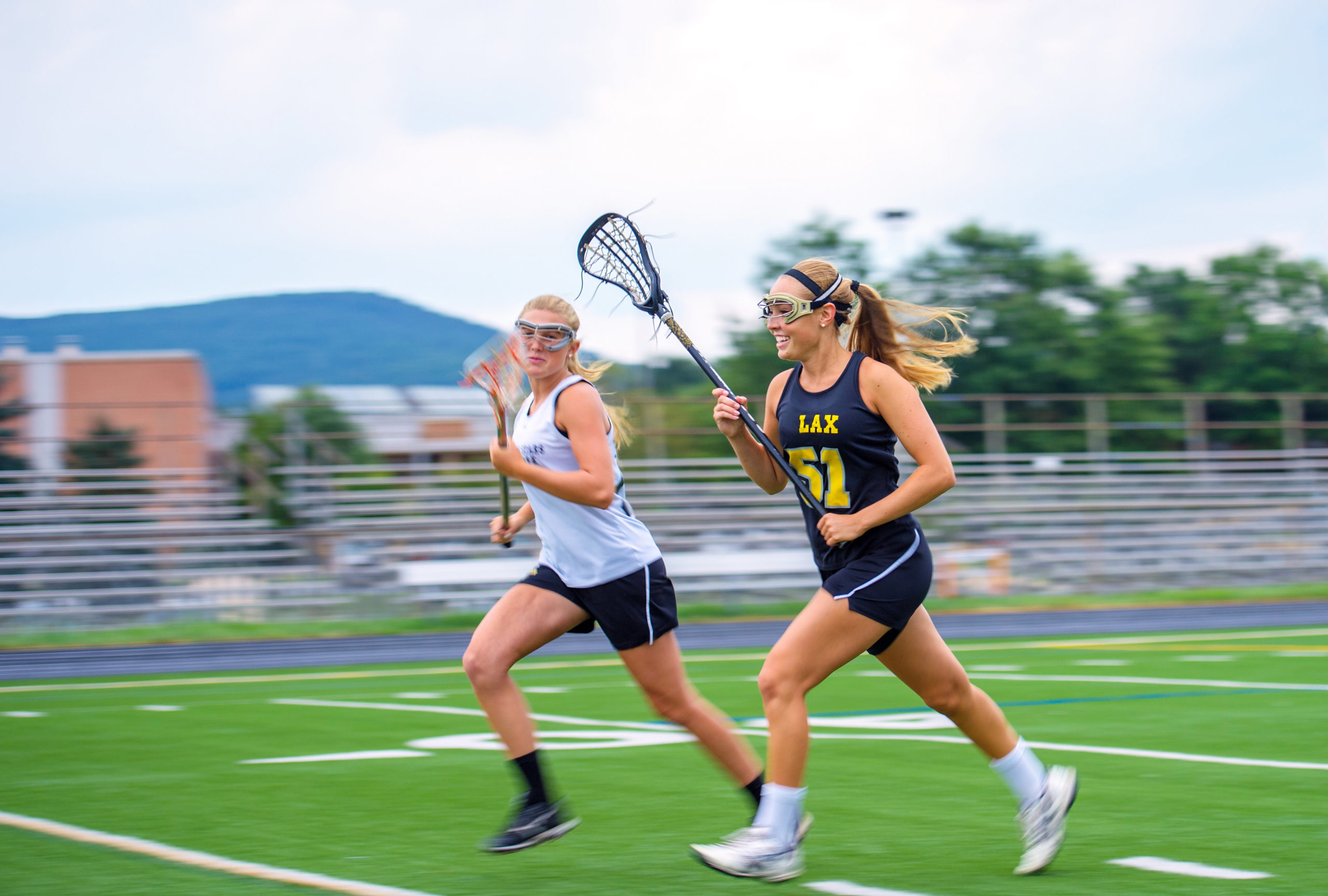Organized sports often require protective eyewear. Here’s what else to think about to avoid eye injuries.
Most organized youth sports leagues require equipment that protects athletes’ eyes – for good reason. Children and teens playing sports can suffer direct hits to an eye or the bone surrounding it. This is a risk in many sports. Athletes get hit in the eyes by balls — smaller balls at high speed are the biggest worry — sticks and other equipment, or other players’ hands and elbows. Eye injuries may continue to have a long-term impact.
At the Vanderbilt Eye Institute, Sylvia Groth, M.D., cares for children’s eyes and vision. She offers these tips for preventing eye injuries that can happen to children and teens during sports and other activities.
What parents can do to protect young athletes’ eyes and vision
- Teach your children that they must wear their sports’ required goggles, face shields or other protective gear, every time they play or practice.
- Activities outside of organized sports need eyewear, too — think paintball, for example. The faster the projectile, the more damage it can do to eyes. Make it a rule: Everyone wears protective goggles. Even some high-speed foam weapons, like Nerf products, can be hazardous to eyes, so provide some cool goggles for children to wear with indoor toys.
- When buying protective glasses or goggles, look for polycarbonate lenses (they won’t shatter) and wraparound shapes. Wraparound styles offer some protection around the side of the face, not just head-on. Multi-sport goggles are usually fine.
- Teach children never to aim firearms of any kind at another person. Pellet guns, BB guns, paintball guns, etc., can cause extreme damage to eyes.
- Eye injuries can happen outside of sports. If your teens mow the lawn, be sure they wear closed safety glasses to protect eyes from below. A lawnmower of any type can kick loose stones and twigs upward into the face at an angle that sends the debris into the eyes even if the teen is wearing sunglasses.
- If something hits your child in or near the eye, take him to an eye doctor that day, or to the emergency department on nights or weekends. A ruptured globe is a serious injury but it’s not always easy to detect. At Vanderbilt University Medical Center’s emergency department, for example, a pediatric ophthalmologist is on call 24/7 to attend to emergency eye traumas if the emergency room staff feel it’s needed.
How to protect vision long-term
- Encourage your child to wear sunglasses whenever outdoors in the sunshine. Sunglasses protect the eyes from the sun’s harmful rays that otherwise go unnoticed. Buy sunglasses with UV protection.
- Teens in many sports prefer contact lenses to eyeglasses. Those using contact lenses should know how to clean and care for their contacts and avoid habits that lead to eye infections. (Don’t sleep with contacts in!)
- Blunt trauma to the eye can increase the risk of glaucoma later in life. Anyone who has an eye injury in youth should get regular eye checkups throughout life.
Eye injuries occurring at earlier stages in your child’s life can easily be prevented by taking these extra measures. Learn more about eye safety and visit our blog.

The Vanderbilt Eye Institute offers a full range of care for adults and children, from routine eye exams to complex conditions such as glaucoma, cataract and macular degeneration. Our 10 locations include Hendersonville, Tennessee. For an appointment, please call 615-936-2020.

